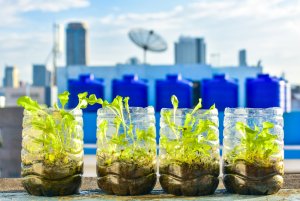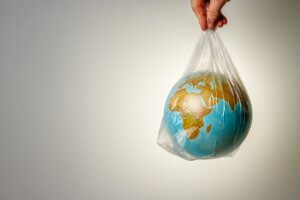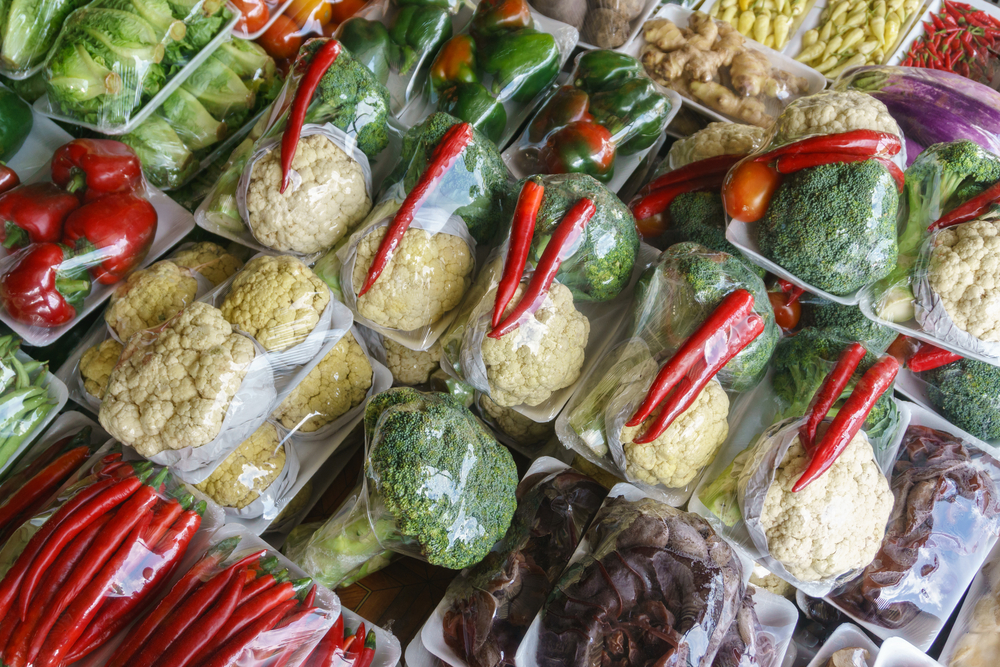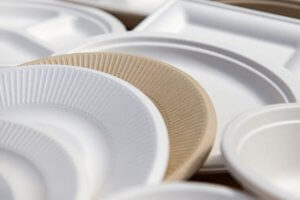11 Simple Ways to Reduce Plastic Waste at Home

People are becoming increasingly aware of the detrimental effects plastic is having on both the environment and our health. We have all seen the photos of huge islands of trash floating in the ocean, animals tangled in bags or with straws stuck in their noses or mouths. Reducing plastic waste at home is not only possible but a great step towards helping the planet.
Despite being recyclable, the majority of plastic ends up in our seas, forests, and streets. And if that weren’t bad enough, recent studies have shown that it contains substances that are harmful to our health. With this in mind, don’t you think it might be worth trying to cut down on your plastic usage?
Say no to plastic

1. Don’t use plastic straws
This is one of the most absurd items ever created. For the most part, straws are completely unnecessary. If you really need a straw, invest in a reusable metal straw, or even an avocado seed straw (yes, they really do exist!) The turtles will thank you for it.
2. Avoid buying bottled water
Some people buy a bottle of water every time they leave the house. Why not take your own bottle or thermos that you can reuse on a daily basis? If the tap water where you live isn’t great, you can simply buy a filter.
3. Take your canvas bags
Always take your own bags with you when you go to do grocery shopping. The best option is to use canvas bags, although you can also reuse any plastic bags you already have in the house. Remember, though, the idea is to avoid using plastic as far as possible.
4. Coffee, the good old way
Everyone knows that coffee capsules are super convenient, but if you care about the environment, it’s probably best to find alternative ways to make your morning coffee. They aren’t biodegradable, so try to avoid them them at all costs. Use filter coffee, as people have done for decades.
5. Think about what you’re buying
When you go to the store, pay attention to what you’re putting in your shopping cart. Avoid items that are sealed and wrapped in multiple layers of plastic. Buying loose fruit and veg instead of packaged items will mean you’ll bring less plastic home with you.

6. Did you know that chewing gum is made from plastic?
Gross, right? While it might be safe to chew, ingesting chewing gum can be bad for your health and is extremely harmful to the planet. But the good news is, there are now a number of natural and environmentally-friendly alternatives.
7. Don’t use plastic food wrap
You can buy alternative food wrap made from paper coated in beeswax. This practical, green alternative can be washed and reused as many times as you like and is perfectly safe for your health. When it comes to buying kitchen utensils, try to use stainless steel or wooden items instead of plastic.
8. Plastic clothes pegs
If you really want to cut down on plastic waste, you need to re-evaluate all the choices you make on a daily basis. Even something as simple as buying wooden clothes pegs instead of plastic is a great way to help the planet.
9. Avoid single-use plastics at all costs
We’ve always been told that disposable cups and plates are super useful when you’ve got guests coming over, but there are alternatives that are far better for the environment. Why not use paper cups and plates instead?
Besides, a little bit of washing up is a small price to pay if it means we can avoid polluting the planet with more of our trash. Plus, in terms of quality, disposable cutlery isn’t actually all that great – the knives don’t cut properly, the plates bend, and the forks are virtually useless.

10. Menstrual cups
Feminine hygiene products are another major contributor to plastic pollution. Pads and tampons are made from plastic and come individually wrapped in more plastic packaging. Menstrual cups are a good alternative.
11. Reuse plastic containers
There are now stores where you can bring your own bottles and containers, and fill them with shampoo, shower gel or cleaning products. While they might not be that common yet, these stores do exist.
So, let’s all try to take better care of our planet. It doesn’t cost a lot to be a more conscious consumer, and in doing so, you can help reduce plastic waste.
People are becoming increasingly aware of the detrimental effects plastic is having on both the environment and our health. We have all seen the photos of huge islands of trash floating in the ocean, animals tangled in bags or with straws stuck in their noses or mouths. Reducing plastic waste at home is not only possible but a great step towards helping the planet.
Despite being recyclable, the majority of plastic ends up in our seas, forests, and streets. And if that weren’t bad enough, recent studies have shown that it contains substances that are harmful to our health. With this in mind, don’t you think it might be worth trying to cut down on your plastic usage?
Say no to plastic

1. Don’t use plastic straws
This is one of the most absurd items ever created. For the most part, straws are completely unnecessary. If you really need a straw, invest in a reusable metal straw, or even an avocado seed straw (yes, they really do exist!) The turtles will thank you for it.
2. Avoid buying bottled water
Some people buy a bottle of water every time they leave the house. Why not take your own bottle or thermos that you can reuse on a daily basis? If the tap water where you live isn’t great, you can simply buy a filter.
3. Take your canvas bags
Always take your own bags with you when you go to do grocery shopping. The best option is to use canvas bags, although you can also reuse any plastic bags you already have in the house. Remember, though, the idea is to avoid using plastic as far as possible.
4. Coffee, the good old way
Everyone knows that coffee capsules are super convenient, but if you care about the environment, it’s probably best to find alternative ways to make your morning coffee. They aren’t biodegradable, so try to avoid them them at all costs. Use filter coffee, as people have done for decades.
5. Think about what you’re buying
When you go to the store, pay attention to what you’re putting in your shopping cart. Avoid items that are sealed and wrapped in multiple layers of plastic. Buying loose fruit and veg instead of packaged items will mean you’ll bring less plastic home with you.

6. Did you know that chewing gum is made from plastic?
Gross, right? While it might be safe to chew, ingesting chewing gum can be bad for your health and is extremely harmful to the planet. But the good news is, there are now a number of natural and environmentally-friendly alternatives.
7. Don’t use plastic food wrap
You can buy alternative food wrap made from paper coated in beeswax. This practical, green alternative can be washed and reused as many times as you like and is perfectly safe for your health. When it comes to buying kitchen utensils, try to use stainless steel or wooden items instead of plastic.
8. Plastic clothes pegs
If you really want to cut down on plastic waste, you need to re-evaluate all the choices you make on a daily basis. Even something as simple as buying wooden clothes pegs instead of plastic is a great way to help the planet.
9. Avoid single-use plastics at all costs
We’ve always been told that disposable cups and plates are super useful when you’ve got guests coming over, but there are alternatives that are far better for the environment. Why not use paper cups and plates instead?
Besides, a little bit of washing up is a small price to pay if it means we can avoid polluting the planet with more of our trash. Plus, in terms of quality, disposable cutlery isn’t actually all that great – the knives don’t cut properly, the plates bend, and the forks are virtually useless.

10. Menstrual cups
Feminine hygiene products are another major contributor to plastic pollution. Pads and tampons are made from plastic and come individually wrapped in more plastic packaging. Menstrual cups are a good alternative.
11. Reuse plastic containers
There are now stores where you can bring your own bottles and containers, and fill them with shampoo, shower gel or cleaning products. While they might not be that common yet, these stores do exist.
So, let’s all try to take better care of our planet. It doesn’t cost a lot to be a more conscious consumer, and in doing so, you can help reduce plastic waste.







